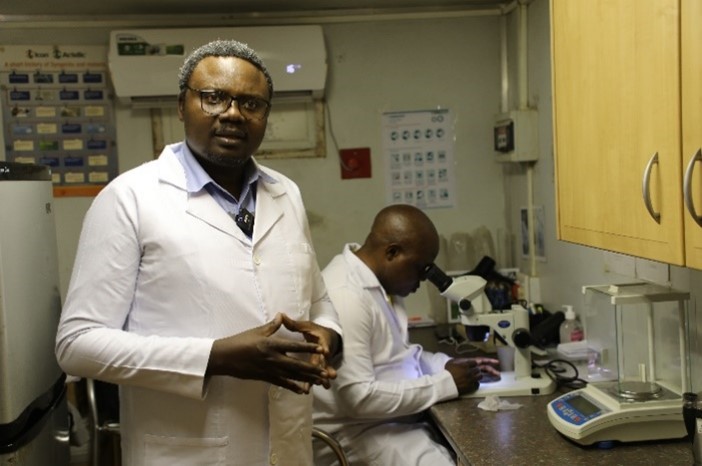
-
 Home>
Home>
- Investor relations and media>
- Global business updates
TFM reduces malaria prevalence from 77% to 25% in its concession
2023-11-26 18:00:23
The DRC is the second most malaria-stricken country in the world after Nigeria, and TFM's concession had a prevalence rate of 77% at the time. In the vicinity of TFM, local communities are vulnerable to malaria due to the lack of medical and sanitation facilities. Right from the start, TFM set up an anti-malaria program, demonstrating its awareness of the danger of this disease.
TFM's communications team paid a visit to the company's entomological laboratory to understand the multiple aspects of the fight against malaria.
"Before taking any action against malaria, we need to answer the following questions: who are the vectors of the disease? what is their biology? what is their behavior? This is what enables us to take well-targeted action against these vectors", Professor Léonard Ngwej, head of the Vector Control department, reminded his guests. Hence the importance of the laboratory.
The fight was not to be waged blindly. It required "precise, well-targeted action". The entomological laboratory was set up to serve as a compass and an eye for the malaria control program.
The lab studies mosquitoes, mainly Anopheles, the vector of the malaria germ. This study determines the insecticide best suited to destroying this causal agent, determines the insecticide's persistence, and prevents the mosquito's resistance to the insecticide. In 2022, Léonard Ngwej Mutshid, head of the company's vector control department, was awarded a PhD in public health for his work in this field.
In recent years, TFM has continued to monitor the incidence of communicable diseases in the local community, such as malaria, HIV/AIDS, cholera, and sexually transmitted infections, and assist with efforts to control their spread. In 2022, TFM took a range of measures to reduce the incidence of malaria. In addition to spraying approximately 3,500 rooms with mosquito repellent, we also identified 10,676 mosquito breeding sites in community and applied larvicide at all sites where we detected malaria-infected mosquitoes. The company also conducts an annual malaria survey of local schoolchildren.
All these measures have enabled TFM to reduce the prevalence of malaria to around 25% between 2008 and 2021.
At community level, testimonials are not to be sought. "Before this program, there was a lot of malaria in Fungurume, and there were many deaths, both of adults and small children. With the spraying, malaria has dropped very significantly", said a district chief in Fungurume.











